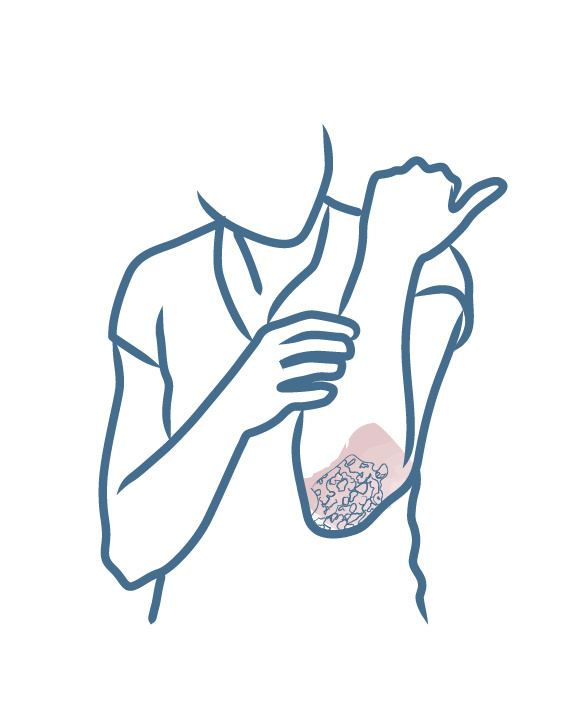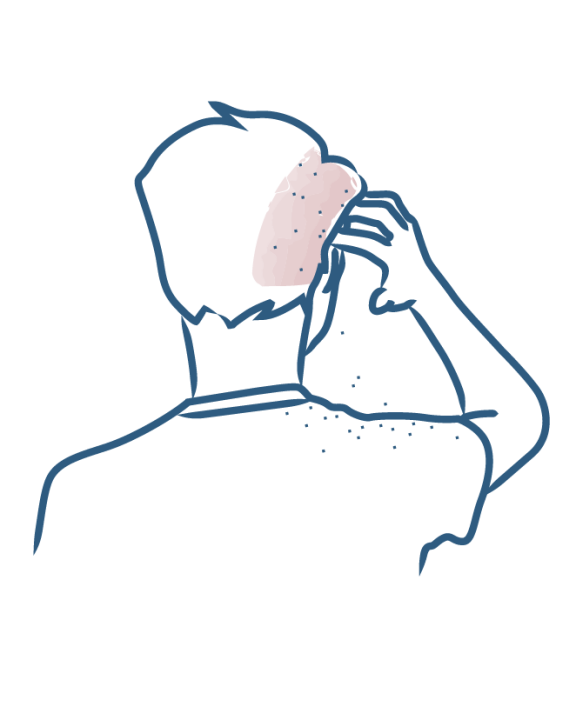What causes psoriasis?

Psoriasis: an inflammatory disease
Inflammation is a defensive response of the body characterized by several factors such as redness, swelling, pain and heat to varying extents.
Inflammation that causes psoriasis plaques
Inflammation is a defensive response of the body characterized by several factors such as redness, swelling, pain and heat to varying extents. The inflammation that causes psoriasis plaques is often severe and results from two-fold cellular disruption.
- Firstly, the T-lymphocyte immune cells are activated and induce an inflammatory state by secreting pro-inflammatory molecules and recruiting other immune cells.
- Secondly, keratinocyte skin cells are renewed much faster than normal (every three or four days compared to every three or four weeks!!), which causes the skin to thicken and scales to appear.
What treatments work efficiently against psoriasis?
Psoriasis is a chronic inflammatory disease in which immunity plays a major role. Most treatments prescribed for psoriasis effectively treat lesions by targeting one or more components of the immune system. Dermo-cosmetic treatments (creams, shampoos) specifically developed for psoriasis are often enriched with keratoreducing agents to counteract excessive skin renewal during flare-ups. However, treatments designed to treat the skin outside of plaques and reduce the frequency of flare-ups must be free from keratoreducing ingredients. In fact, keratolytic action on the skin outside of psoriasis plaques simulates the same effects as a micro-trauma which could trigger a flare-up, and this is not the desired effect!
What triggers psoriasis flare-ups?
An inflammatory psoriasis flare-up can be triggered by various factors:
- infections
- taking certain medicines
- drinking alcohol or smoking
- cold, heat, sun
- stress
- fatigue
- skin trauma such as insect bites/stings, wounds, blows, shots, vaccines, irritation, etc.
With some flare-ups, no trigger factors can be determined. It is useful to be aware of your own triggers to help prevent some flare-ups, however it should not become an obsession because there is never one single "culprit" responsible for the inflammatory response.
More information
- Discover Is psoriasis genetic?
What causes psoriasis?
Is psoriasis genetic?
- Discover Is psoriasis an autoimmune disease?
What causes psoriasis?
Is psoriasis an autoimmune disease?
Our care routines
Psoriasis-prone skin
Dermatological expertise
To better understand your skin and hair, discover our exclusive content and innovative care products designed to improve your quality of life..


